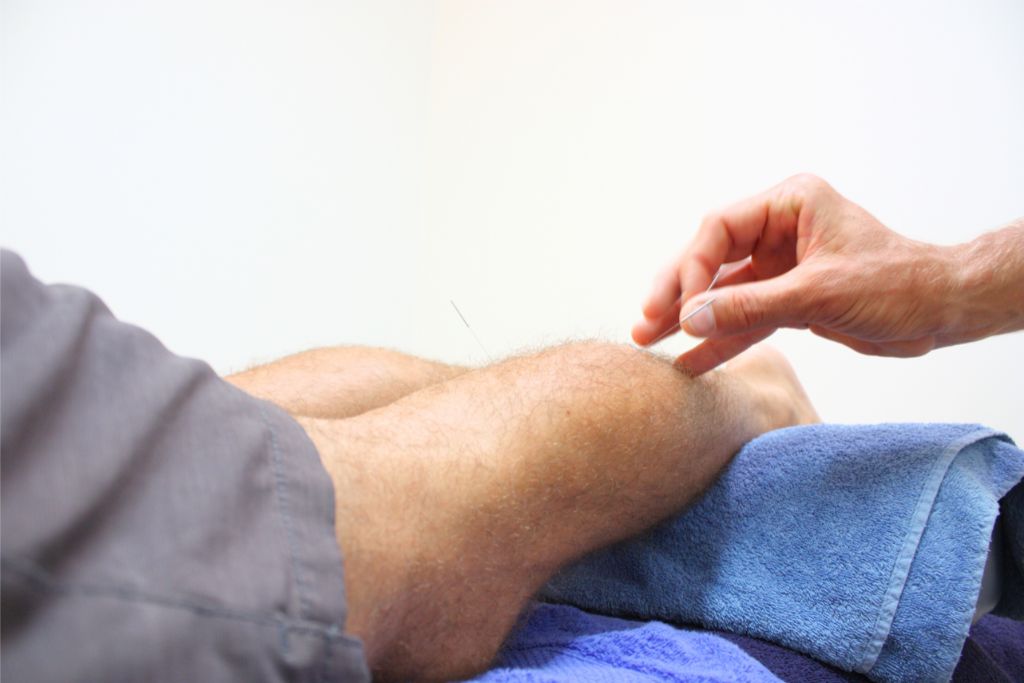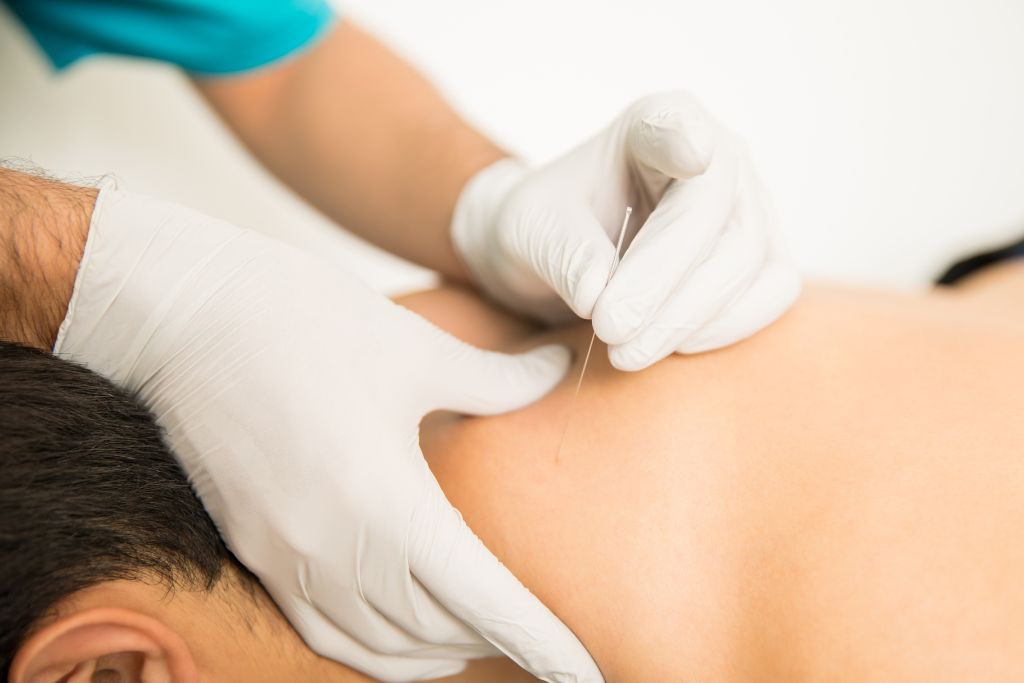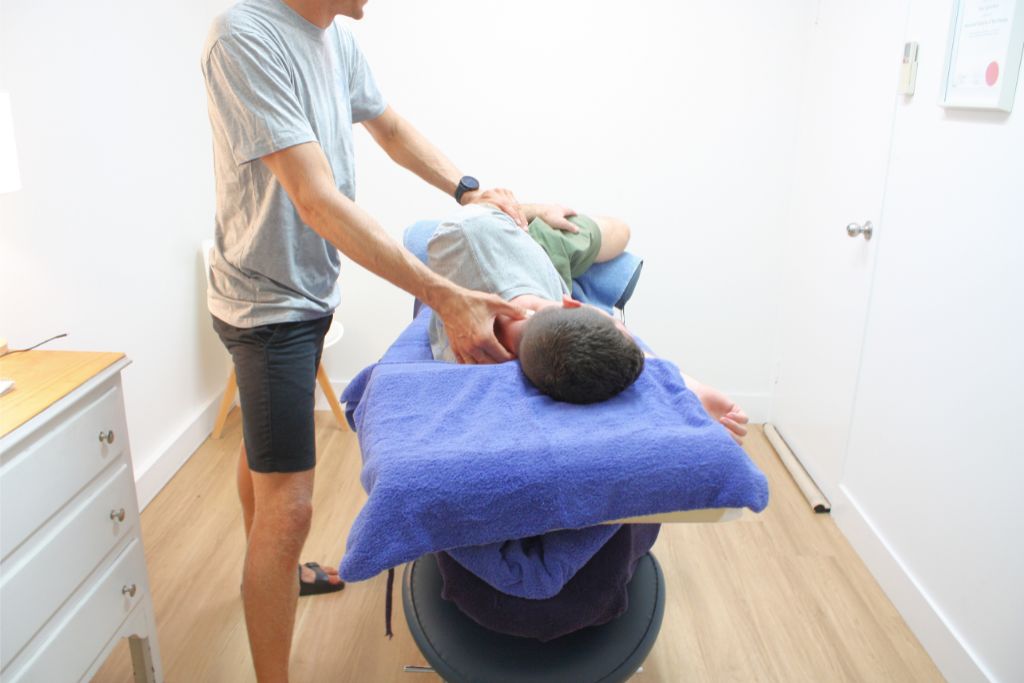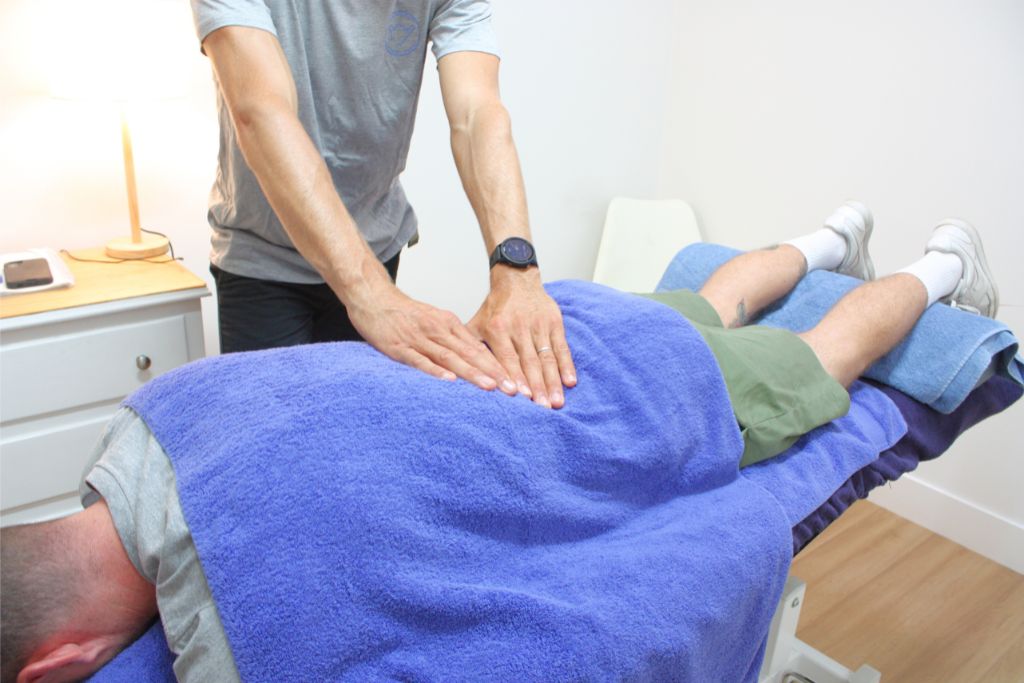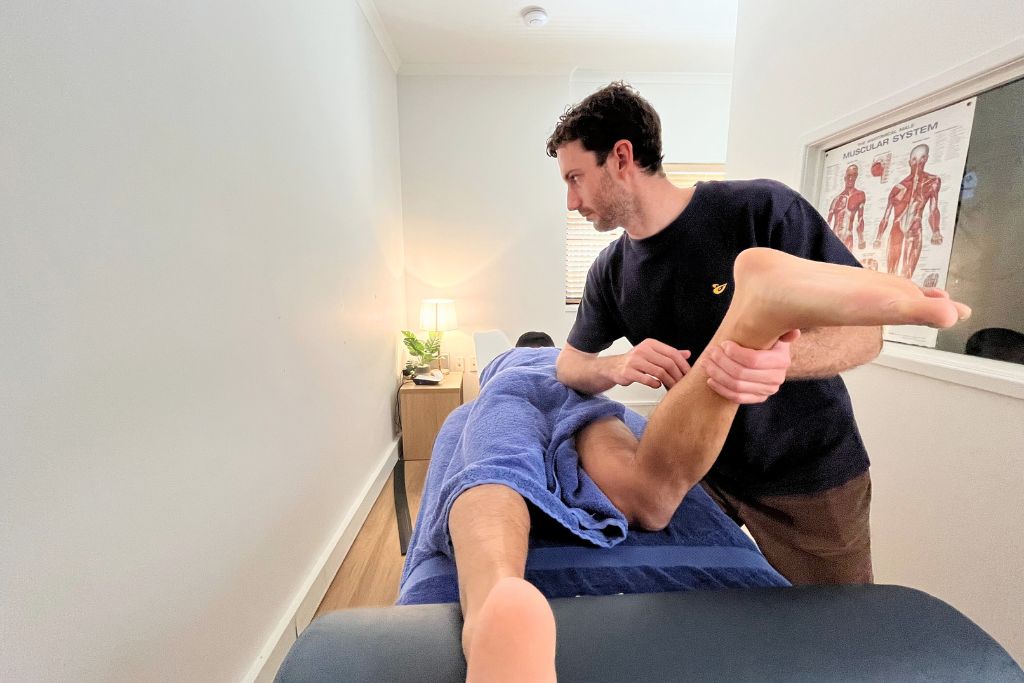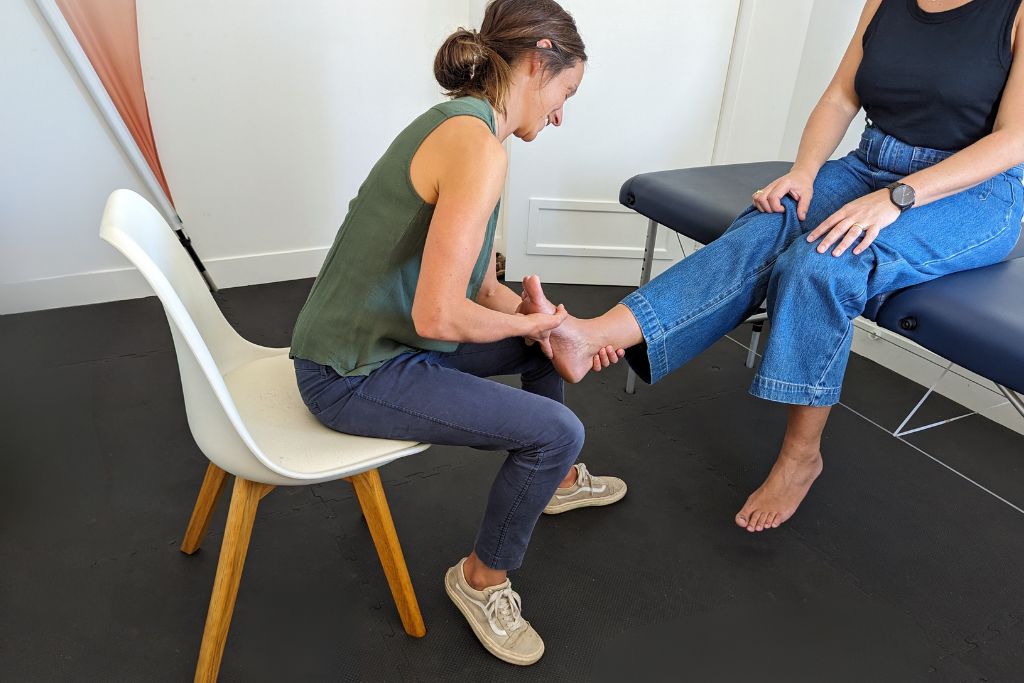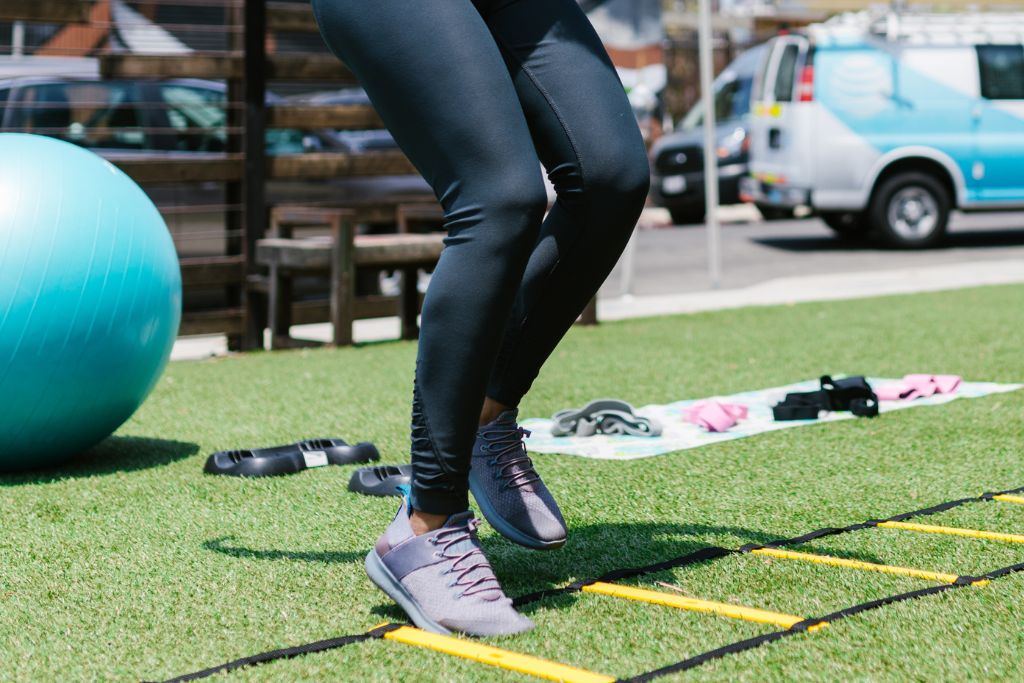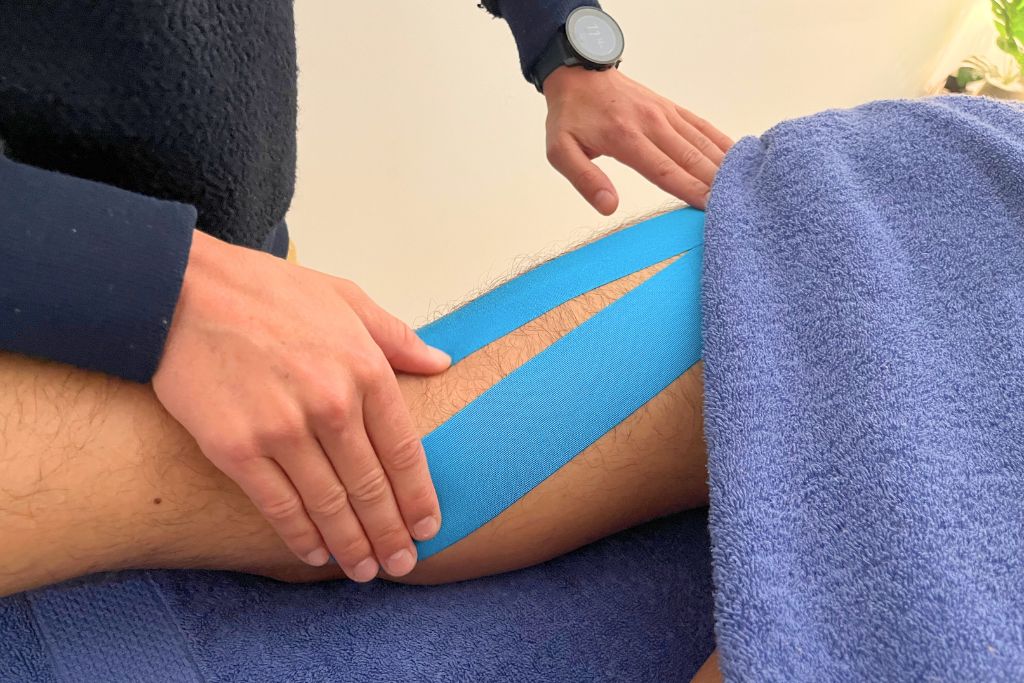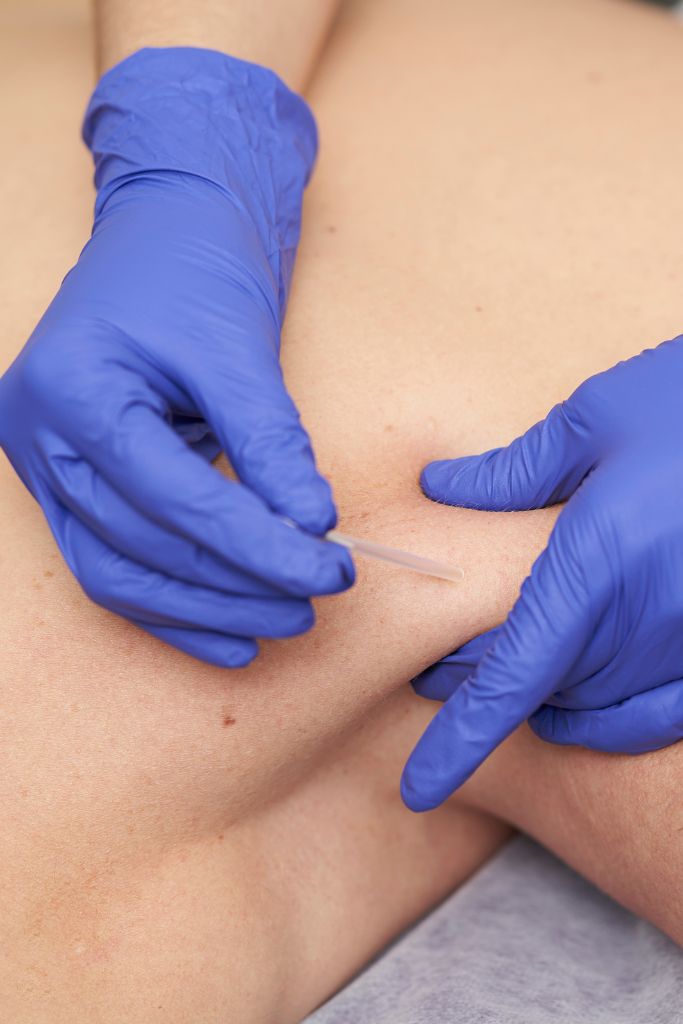Dry Needling – Surf and Sports Myotherapy
An effective therapeutic technique that improves pain control, reduces tension, and increases mobility.
A proven therapeutic technique to ease muscular pain
Dry needling’s benefits, primarily in musculoskeletal pain relief, are backed by emerging research. It’s typically part of a broader therapeutic approach, including physical therapy and chiropractic care, aiming to trigger the body’s healing response and relax tight muscles.
What does dry needling do?
The needles used in dry needling are designed to stimulate the body’s natural healing response and promote the release of tight muscles and fascia. The technique is thought to work by causing a local twitch response, which reduces muscle tension and increases blood flow to the affected area. Dry needling is often used in conjunction with other forms of therapy, such as physical therapy, myotherapy, remedial massages and chiropractic care.
What is dry needling good for?
Dry needling is primarily used to treat muscular tension and spasms which commonly follow injuries and often accompany the degenerative processes.
This treatment is widely used for a variety of musculoskeletal issues, such as shoulder, neck, heel, hip and back pain. It can improve pain control, reduce tension, and increase mobility. It may also be beneficial for certain conditions like migraines, tension headaches, and chronic pain conditions.
Dry needling benefits
Dry needling therapy offers several benefits for those suffering from muscular pain and dysfunction.
Pain relief
One of the main benefits is pain relief, as the technique can target trigger points and release tension in the affected muscles, reducing pain and discomfort.
Improve muscle function
Dry needling can also improve muscle function and improve range of motion, making it a useful tool for athletes or those with mobility issues.
Minimally invasive
The technique is minimally invasive and has few side effects, making it a safe and effective alternative to medication or more invasive treatments.
Versatile and effective
Overall, dry needling is a versatile and effective therapeutic technique that can provide significant benefits for those with muscular pain and dysfunction.
We provide dry-needle service in these areas
What our patients say about us
Explore our full range of services:
Frequently Asked Questions about Dry Needling
Does dry needling work?
Yes, dry needling technique has been found to be effective for many conditions, particularly musculoskeletal pain and dysfunction. However, the effectiveness of dry needling may vary depending on the individual and the specific condition being treated. It is important to seek treatment from a skilled and qualified practitioner. Give us a call and we can discuss your concerns!
Does dry needling hurt? Is dry needling painful?
Dry needling can be uncomfortable or even painful for some people, but the level of discomfort can vary depending on the individual’s pain threshold and the area being treated. The needles used in dry needling are very thin and designed to minimise discomfort, but some people may experience a mild to moderate sensation when the needle is inserted into the trigger point or knot. This sensation is often described as a dull ache, tingling, or pressure, and may last for a few seconds to a few minutes. After the needle is removed, some people may experience temporary soreness or stiffness in the treated area, but this usually resolves within a day or two.
Is there any dry needling side effects or dry needly contraindications?
While dry needling is generally considered safe, there are some potential side effects and contraindications to be aware of. Some people may experience mild bruising, bleeding, or soreness in the treated area, but these side effects are usually temporary and resolve within a few days. In rare cases, more serious side effects such as infection or nerve damage may occur. These cases are extremely rare when the treatment is performed by a qualified and experienced practitioner using sterile needles.
Dry needling is contraindicated in certain situations, such as if you have a bleeding disorder, are taking blood thinners, or have a compromised immune system. The treatment should also be avoided in areas where there is an infection, inflammation, or open wound. Additionally, dry needling should be performed with caution in pregnant women and in certain areas of the body, such as near major blood vessels or nerves. Again, we’re just one call away to discuss your concerns.
Dry needling vs acupuncture, what’s the actual difference?
While both use needles, they’re distinct in purpose and technique.
Acupuncture, a traditional Chinese practice, involves inserting thin needles at specific body points to balance energy flow, or qi. Dry needling, a modern medical technique, targets muscle knots and connective tissues to alleviate pain and improve functionality.
It relies on anatomical knowledge to pinpoint trigger points for effective treatment.
The needles differ, too.
Acupuncture needle uses longer, finer needles for deeper skin penetration, often leaving them in place for extended periods. In contrast, dry needling employs shorter, thicker needles for quick insertion and removal, focusing on trigger points.
Come and meet Gary Javonena,
Noosa’s well loved dry needling practioner
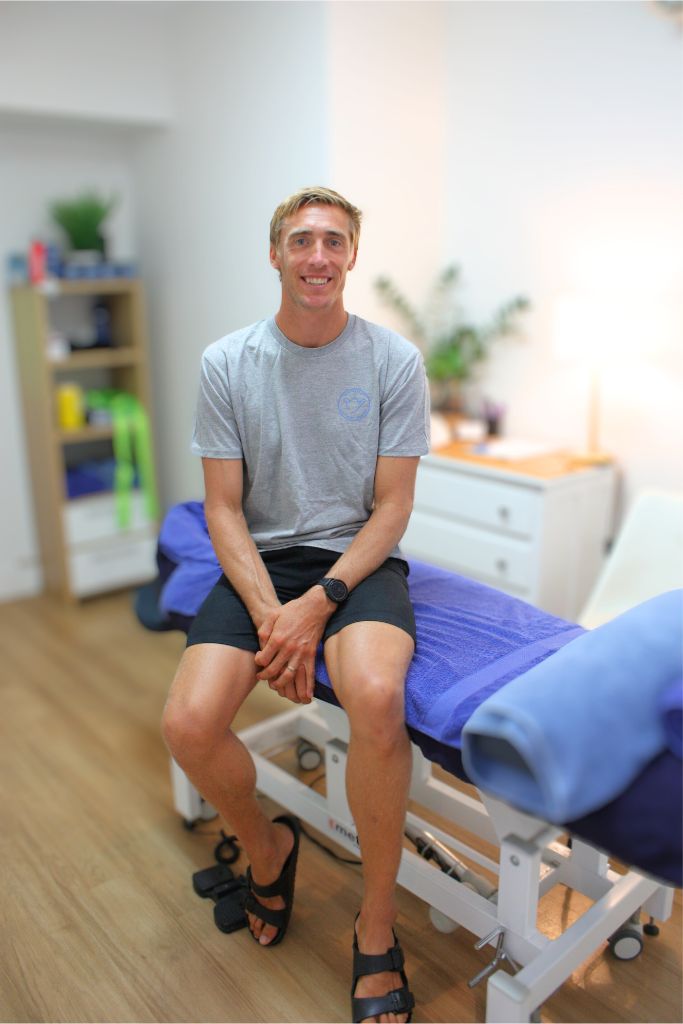
There, I was working in a busy private practice with a bunch of legends who helped me become the person and practitioner I am today.
Also, surfing is my thing.
When I’m not working you can find me at the nearest beach riding waves and, when the surf is flat, I swop my board for a mountain bike and pedal hard in Wooroi, Nambour or wherever I can have fun!
Finally, you might also see me on a jetski dressed in yellow and red on the weekends, as part of the Noosa Lifeguards team.
I’ll tell you more when we meet!
I have decided to become a myotherapist, remedial massage therapist and dry needling practitioner because in my mind, there is nothing more rewarding than helping people to get back to doing what they love and feeling healthy and happy.
Come and see us, we’re here to help!
Opening Times
Monday to Friday : 08:00 – 19:00
Saturday: 08:00 – 16:00
